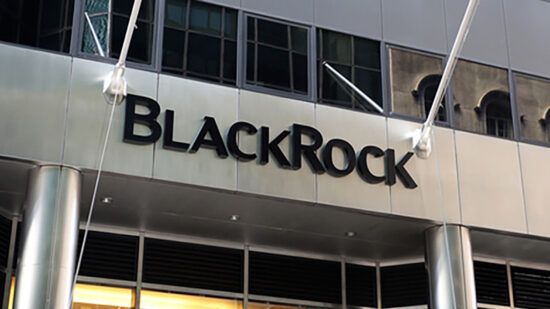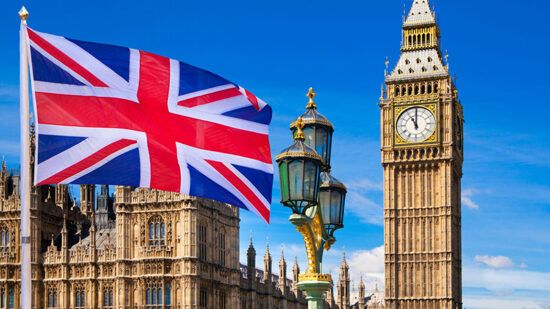In March, the US Securities and Exchange Commission (SEC) adopted rules to enhance and standardise climate-related disclosures. But, despite watering the rules down from the original proposal – including dropping a clause that required registrants to report their Scope 3 emissions – the Commission now faces multiple lawsuits, both from conservatives who see the rules as legislative overreach and from climate activists who accused the SEC of “capitulating” to industry lobbyists.
Fredo Silva, partner at the law firm Morrison Foerster, speaks to PA Future on why the SEC faces a judicial review on its recently-published Climate Disclosure Regulations and how long it could take, and gives advice to registrants stuck in limbo over what they should be doing to prepare.
Could you briefly summarise the situation with the SEC’s Climate Disclosure Regulations? How did we get to this point?
The SEC has spent the last couple of years developing the regulations, first putting out a public request for commentary and suggestions regarding what they should look like, and then, after publishing the proposed rules, they received thousands of comments on the rules from all different kinds of stakeholders. Then they came out with the final rules a couple of months ago, which pared back a fair bit compared to the draft rules that came out the year before, in terms of reducing or eliminating Scope 3 reporting requirements, clarifying some materiality requirements as far as Scope 1 and Scope 2, and eliminating certain other requirements.
I think they tried to harmonise the rules with other SEC guidelines – the governance structure looks very much like the governance structure for the cybersecurity rules that recently came into place, for example – and they really tried to reduce the reporting burden on issuers. But, in the end, nobody was happy with them. I don’t even think the SEC is happy with them, given what they originally wanted to do. Certainly, the issuers aren’t happy, given that they still view them as overly burdensome. And then those that are very much pro-disclosure and are very concerned about the environment are unhappy and don’t think the rules go far enough.
As a result, the SEC now faces multiple lawsuits from various stakeholders over the disclosure rules, and, instead of waiting for a court to put a halt to the rules coming into effect, the SEC decided to hit pause themselves while the judicial review takes place.
How does this affect those who’d been expected to comply with the regulations?
It’s essentially the status quo, right? We have very conservative courts these days, and, if it gets as far as the Supreme Court, there’s a majority of conservative justices sitting on that too, and, generally, conservatives are pro-business and anti-regulation.
By and large, a lot of folks who would never have reported their greenhouse gas emissions without the SEC rules will probably just act like the rules were never adopted in the first place, because, for all intents and purposes, for them, that is exactly the case. But, for large publicly traded companies that were already planning on reporting, they’re going to have to start getting ready for those rules anyway, because the SEC rules are not exactly that different from a lot of other standards that may apply to them, including Corporate Sustainability Report Directive (CSRD) in Europe, California’s reporting rules or voluntary reporting rules that they may be trying to comply with.
How long could the judicial review take? And what are the potential outcomes if the SEC wins or loses its case?
Litigation in the US is always unpredictable for how long it could take. It wouldn’t surprise me if the initial case being heard in the district courts takes 12-18 months to conclude. And then, obviously, there will probably be an appeal at the circuit court level, and then it could work its way up to the Supreme Court. So, if the SEC decides to defend it all the way through, it could take two or three years before it’s resolved.
If the SEC prevails, then the rules will become effective. But, my guess is that, given the length of time it could take to get it through the courts, and the fact that the disclosures require advanced preparation, they’d have to revise the start dates significantly. You can’t just flip a switch and then make the disclosure, issuers would have to start tracking data and putting policies and procedures in place to verify the data collected in the first place.
On the other hand, if the SEC doesn’t prevail, or we end up in a political climate where the regulation is dropped altogether, then we’re in that scenario I mentioned earlier, where some issuers don’t need to do anything, but others that are subject to other rules or voluntary reporting are going to be reporting along those lines anyway.
I think you’ve alluded to it already, but, in the event of a Donald Trump-led administration taking over after the elections in November, what effect could that have on the regulation?
I think a lot of things will be different if Donald Trump is re-elected, or if the Republicans win the November election and gain control of Congress. It’s no secret a lot of Republicans believe the Climate Disclosure Regulations go too far, or maybe should never have been adopted in the first place, and the SEC is using its disclosure mandate to implement social policy. Whether you agree or not, that’s how they view these rules, and they’ve criticised the SEC heavily for it. I wouldn’t be surprised to see the rules scrapped under a Donald Trump administration.
What advice would you give to registrants at this stage?
Firstly, they need to be aware that it’s not just the SEC rules that could apply to them when it comes to climate disclosures. They need to be aware of the California rules and the CSRD rules, and they need to look at the other countries they operate in, then think about whether or not they may have reporting obligations anyway. It’s better to get started soon if there are other regulations that apply because, even though some of those rules may not be effective for a couple of years, you immediately have to start publishing the data and putting out the report as soon as they are effective. You don’t want to be unprepared the first time you make that information public. Ideally, you’d be working on this at least a year in advance so that you can work the kinks out of the system before making the data publicly available the next year.
Also, for smaller companies where the climate issues are less material, and where they wouldn’t normally voluntarily report because of cost issues or whatever, they should be mindful that larger companies will have to report to things like CSRD, which includes Scope 3 emissions. For them to report their Scope 3 emissions, they’ll have to include all the vendors and suppliers in their supply chains, which could include those smaller companies. It’s not turtles all the way down, it’s more like reporting all the way up, right? So, for a multinational pharmaceutical company that reports their Scope 3 emissions to comply with CSRD, they will need the data from their vendors, and they’ll probably only sign contracts with those smaller companies if they’re reporting their emissions too.
In your opinion, has this damaged the SEC’s reputation?
I think so, yes. But I do sympathise with them, they were in a really tough spot because their reputation was going to be damaged no matter what they did. If they did nothing, then they would have been abdicating responsibility and it would have left them falling behind compared to other nations and regions of the world, like the EU and China. They’d also have been ignoring mandates given to them by the current Democratic administration, as well as demand from a variety of institutional shareholders that had put pressure on the SEC who were asking for rules on these issues. So, they couldn’t do nothing.
On the other hand, to put out rules that were so aggressive – at least in my point of view – was obviously going to lead to a lot of opposition and make it much easier for the rules to be challenged. They could have picked a middle path where, rather than force people to disclose whether they wanted to or not, instead they could have asked issuers to make what disclosures they decided to produce accessible and focus on the transparency aspect.
A lot is going on with the SEC right now, they’re putting out all kinds of new rules. There are lots of issues with American institutions and politics generally, I’d say. So, would this make a really big difference, or would it be a drop in the ocean? I don’t know…








